Thanks for joining uspublished at 17:24 BST 15 June 2021
Updates were brought to you today by Doug Faulkner, Alexandra Fouché, Claire Heald, Joseph Lee, Joshua Nevett, Mary O'Connor and Holly Wallis.
Join us again tomorrow.
All adults in England should be able to book their Covid-19 jab by the end of this week, NHS boss Sir Simon Stevens says
He says vaccine supply is constrained, so the NHS is pacing itself, but it is time to finish the job
It's unlikely Scotland will move to level 0 - near normal - restrictions on 28 June, with a final decision due next week, First Minister Nicola Sturgeon says
The regrettable delay to easing lockdown in England is so that the government does not find it has to reverse its decision, Cabinet minister Michael Gove says
Industry figures say live music, theatre and other events have been dealt a "hammer blow" by the delay
Without delay, it's possible the country could have returned to hundreds of deaths a day, Sage scientist Professor Graham Medley says
The PM confirmed on Monday that there would be a four-week delay to the lifting of all restrictions beyond 21 June due to the rapid spread of the Delta variant
There were 108 deaths registered involving Covid-19 in the week ending 4 June 2021, two more than the previous week, ONS figures show
Edited by Claire Heald
Updates were brought to you today by Doug Faulkner, Alexandra Fouché, Claire Heald, Joseph Lee, Joshua Nevett, Mary O'Connor and Holly Wallis.
Join us again tomorrow.
The main headlines:
Here are the latest international developments:
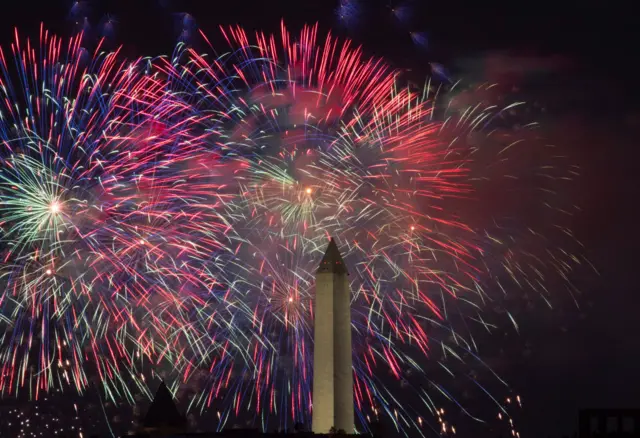 Image source, Getty Images
Image source, Getty ImagesUS President Joe Biden wants to encourage nationwide celebrations on 4 July to mark the country’s return to some kind of normalcy after 16 months of pandemic.
This also coincides with the self-imposed deadline of vaccinating 70% of US adults by that date (although the country is not expected to reach that goal by then).
The holiday will also see the largest event yet of Mr Biden’s presidency, the Associated Press news agency reports, external, with plans to host emergency and key workers, as well as members of the military, at the White House.
“We welcome you to join us by hosting your own events to honour our freedom, salute those who have been serving on the front lines, and celebrate our progress in fighting this pandemic,” the White House wrote in an email to state and local officials.
“America is headed into a summer dramatically different from last year,” the administration wrote to officials. “A summer of freedom. A summer of joy. A summer of reunions and celebrations.”
The US is set to reach the milestone of 600,000 deaths seen in the pandemic later on Tuesday.
 Kerry Allen
Kerry Allen
BBC Monitoring, Chinese Media Analyst
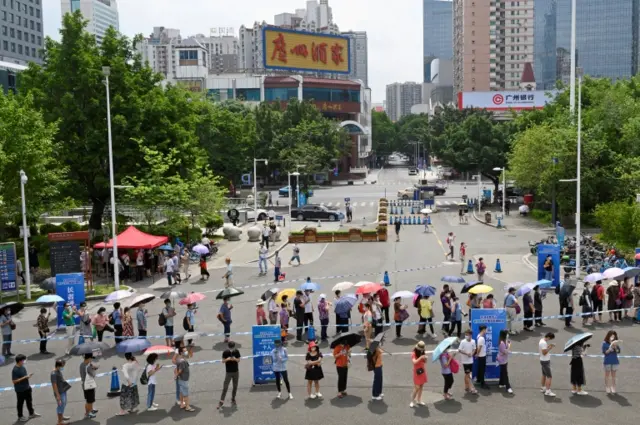 Image source, Reuters
Image source, ReutersIt is big news in China on Tuesday that more than 900 million vaccines have been administered there, external.
China has delivered more vaccine doses than any other country in the world, and in recent days, has on average been carrying out some 20 million doses a day. The last 100 million doses were carried out within six days; China surpassed the 800-million mark on 9 June.
Our World In Data statistics suggest that the number of inoculations carried out in China is more than a third of the global total.
China’s statistics include both single and double doses. As China has a population of 1.4 billion people, this means that at least 32% of the population have been fully vaccinated, ie have received two doses.
The country is on track to meet its first objective of vaccinating 40% of the population by the end of June. The hope is then to vaccinate 70% of the population by the end of the year, external, and 80% by early 2022.
Officials have said that 80% will be the national threshold for herd immunity, external.
There are currently seven vaccines used in China. These are all domestic vaccines, and the National Health Commission says the country has the capacity to produce “close to five billion vaccine doses” annually.
It is currently prioritising vaccination among adults, but last week approved the use of vaccines on children over the age of three.
A Cumbrian mobile DJ says he fears many in the hospitality and wedding entertainment business will not survive after yesterday's announcement of a four-week delay to the planned easing of lockdown restrictions in England.
Wedding venues and planners have told the BBC the government's announcement about unlimited guest numbers being permitted has provided some relief, but they are still deeply worried about the future of their industry.
The summer months are usually the busiest time of year for Andy Neen, who runs a mobile disco and also owns Cumbria DJ Store in Penrith, which sells, repairs and hires equipment to bands, clubs and festivals. However, he is currently facing a lot of uncertainty.
Mr Neen said: "I've managed 15 months and I'll survive another four weeks but it's like being back at square one again building up a customer base.
"If it gets extended again and we miss revenue from August, that might wipe me out.
"I've had no income basically, well very little, the shop's been closed four times and all my customers work in the same industry, the forgotten industry.
"It's not just DJ's, it's bands, it's wedding planners and venue dressers - anybody who works alongside us, nobody has been able to work."
 Image source, Getty Images
Image source, Getty Images Mark Savage
Mark Savage
Music reporter, BBC News
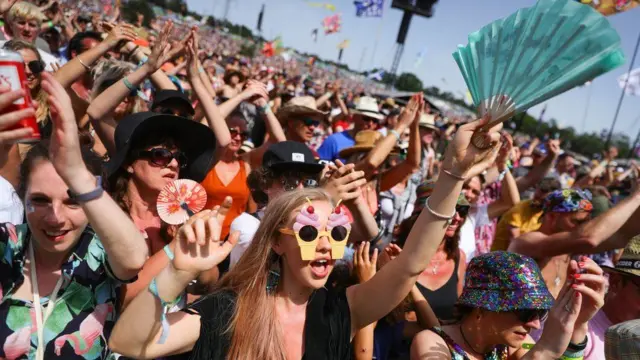 Image source, PA Media
Image source, PA MediaThe coronavirus pandemic wiped out much of last summer's festival season, with only a handful of events able to go ahead - most held in car parks or socially-distanced green field sites.
At the start of this year, organisers were more optimistic amid the continued vaccine drive and the availability of mass testing, with dozens of events putting tickets on sale.
But as the year has gone on, events scheduled for early summer - most notably Glastonbury - have been cancelled, with dozens of others following in April and May.
While others moved to dates later in the summer, the government's decision to delay the easing of lockdown restrictions until 19 July has now forced many festivals to shut their doors for another year.
To help fans plan ahead, we've put together a guide of all the festivals that have been delayed, cancelled, postponed or given the green light as of 15 June, which can be read here.
 Image source, Natalia Bubel
Image source, Natalia BubelNatalia Bubel says she has not seen her parents for three years
The longer wait for the end of legal restrictions on social contact in England announced yesterday has affected many people's work and personal lives. One of them is Natalia Bubel, who works in the events industry for travel companies.
“It’s been tough and it’s not getting any easier. We’ve lost 80% of our staff and in light of further restrictions we may struggle," she says.
Her company is preparing for events in the autumn and she says it's crucial that those are able to go ahead.
Their business has been doubly affected, first by restrictions which make events and exhibitions impossible and secondly by the economic damage to the travel companies who are their customers.
She says "if we don't pick up new jobs soon there’s not going to be much left" of their business.
Meanwhile, the last time she was able to travel and see family in Poland was three years ago, and a longed-for trip in August is hanging in the balance.
“I’ve been hoping that Poland will be added to the green list but I’m slowly losing hope,” she says.

 Reality Check
Reality Check
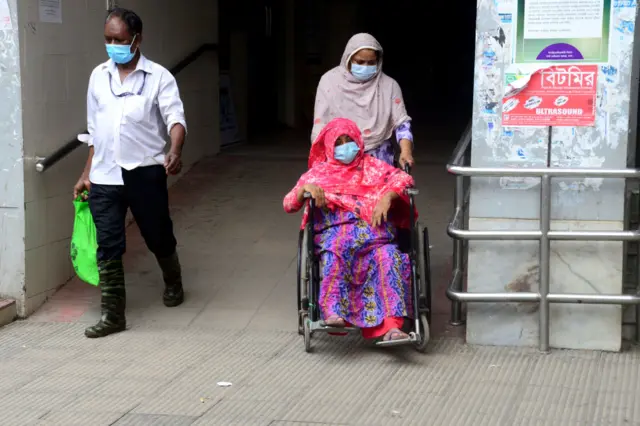 Image source, Getty Images
Image source, Getty ImagesThere is controversy about why India was not placed on the travel red list with Pakistan and Bangladesh
As England's decision yesterday to delay ending coronavirus restrictions sinks in, there is increasing focus on how the Delta variant was able to gain such a foothold in the UK.
Labour has been blaming the government’s “lax border measures” – in particular the “fortnight of failure” when it delayed adding India to its travel-ban red list.
India is where the Delta variant, which is being blamed for the recent increase in cases in the UK, was first identified.
It was added to the government’s red list (with the highest level of travel restrictions) on 23 April 2021 – two weeks after neighbouring Pakistan and Bangladesh.
The government has said this delay was based on the proportion of people arriving in the UK from the three countries who tested positive for coronavirus - the positivity rate.
Mr Hancock told Parliament on 17 May:"The truth is that when we put Pakistan and Bangladesh on the red list, positivity among those arriving from those countries was three times higher than it was among those arriving from India."
The government has not published all the figures that it said supported that claim, but Reality Check said at the time that there was no evidence that Bangladesh had three times the positivity rate of India.
In the Commons last night, Mr Hancock had changed his line, saying: "As I have said to this House before, when the decision was taken on 2 April to put Pakistan and Bangladesh on the red list, test positivity of travellers returning from Pakistan was 4.6%—three times the 1.6% positivity of returning travellers from India."
But this time he did not mention Bangladesh. The figures for Pakistan and India are close to the ones that have been published by Mr Hancock’s department, although we cannot be sure because it has not published the figures for the exact date he was talking about.
Vaccinating a country of 1.4 billion people is no easy task.
India began giving jabs in mid-January, but by May, the country was severely low on stocks.
The supply shortage, however, has not been the only challenge.
India's effort to vaccinate its people has had varying success across regions because of other issues, from planning to infrastructure to misinformation.
Data from 729 districts shows wide disparities in vaccination rates.
Some districts have given jabs to half their population, while others have vaccinated as little as 3%.
You can read our analysis of what went right - and wrong - in four districts here.
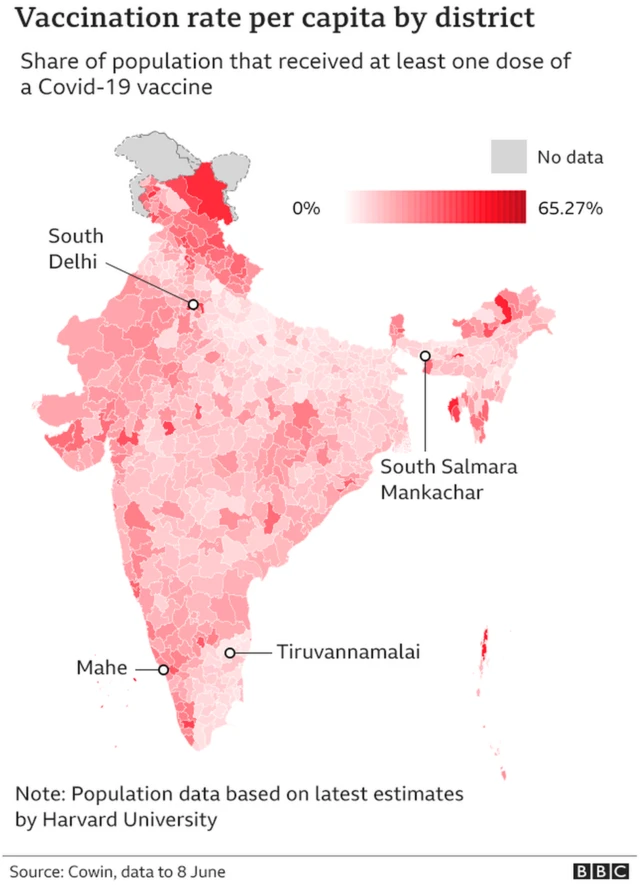
And you can read about which South Asian countries are seeing cases in our piece here.
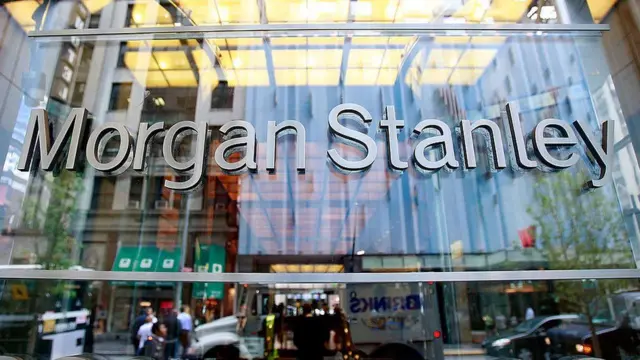 Image source, Getty Images
Image source, Getty ImagesThe boss of a US investment bank is cracking down on employees reluctant to return to work as restrictions ease.
Morgan Stanley chief executive James Gorman said: "If you can go into a restaurant in New York City, you can come into the office."
Speaking at a conference, Mr Gorman said he would be "very disappointed" if US-based workers had not returned by September.
It comes as a number of banks have taken a tough position on home-working.
Jamie Dimon, the boss of America's biggest bank JP Morgan, recently said he wanted US staff back in the office from July. Meanwhile Goldman Sachs bankers wereinstructed to report their vaccine statusahead of returning to their desks this week.
 Image source, Getty Images
Image source, Getty ImagesCentre Court's retractable roof creates an enclosed environment
Despite delaying the final stage of England's lockdown easing, the government yesterday announced that Wimbledon would be able to host a full capacity crowd for the men's and women's finals.
Now the Department for Culture, Media and Sport has also confirmed that the tournament will be able to close the Centre Court roof over the crowd of 15,000 in the event of rain.
The Wimbledon finals, along with the knockout games of Euro 2020 being played at Wembley, are being included in the government's fan pilots, meaning they are exempt from the current limit on crowds.
The department says it has trialled spectator events at a range of both indoor and outdoor venues, including the World Snooker Championship final at Sheffield's Crucible Theatre.
Spectators at Wimbledon will be expected to prove their Covid status, using lateral flow tests or the NHS app - which can record vaccination status.
Trials of using the NHS app to record natural immunity from a previous infection are also due to take place.
Yesterday, there were a further 132,627 first vaccine doses administered in the UK and 235,928 second doses, for a total of 368,555 extra vaccinations.
It means that 41,831,056 people have now had at least one dose, equivalent to 79.4% of people aged over 18.
There are 30,209,707 people who are fully vaccinated - 57.4% of adults.
Today's figures show another 7,673 people have tested positive for coronavirus.
It means that cases in the last seven days have risen 38.8% from the previous week.
A further 10 deaths within 28 days of a positive test were also recorded.
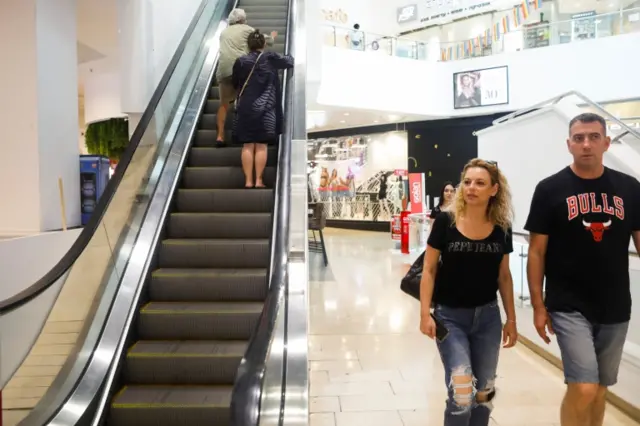 Image source, Reuters
Image source, ReutersPeople have been visiting shopping centres without masks in Israel
Israel has ended a requirement to wear masks indoors, lifting one of its last major restrictions after a successful vaccination programme.
The country's health ministry said there were three exceptions - unvaccinated healthcare workers, people going into quarantine, and travellers on a flight.
Israel starting easing lockdown restrictions in February as studies revealed the effectiveness of vaccines in preventing hospitalisations and death.
Israel has one of the highest vaccination rates in the world. More than 63% of people have received at least one dose, external.
Prime Minister Boris Johnson has criticised anti-lockdown protesters who harassed and abused BBC Newsnight political editor Nicholas Watt at a demonstration outside Downing Street.
Johnson said, external it was "disgraceful to see the hounding of Nick Watt doing his job".
"The media must be able to report the facts without fear or favour – they are the lifeblood of our democracy," he added.
A group of demonstrators surrounded Watt at the protest on Monday after the announcement of the delay in lifting restrictions, following him and shouting "traitor", until he took refuge behind policed barriers.
England has announced a delay in easing coronavirus rules and Scotland has said it is "likely" to put off its next step out of restrictions for a further three weeks.
So what are the rules on where you can go and who you can meet across the UK?
We've set out all the latest changes in our lockdown explainer here.
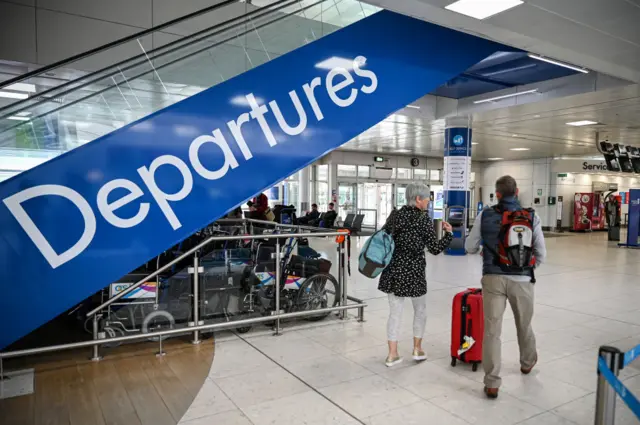 Image source, Getty Images
Image source, Getty ImagesBack at the Scottish parliament, where MSPs are asking questions of First Minister Nicola Sturgeon, Greens co-leader Lorna Slater welcomes the "cautious" decision to delay further easing of restrictions.
Ms Slater asks if the first minister agrees that non-essential international leisure travel should be the last thing that returns to normal.
Ms Sturgeon says people should not travel overseas for non-essential reasons.
The first minister speaks of her "intense frustration" at the lack of more robust border controls around the UK.
She says we are paying a price for that now with the Delta variant.
Ms Sturgeon insists that limiting international travel gave us the best chance of halting new variants and getting the situation back under control.
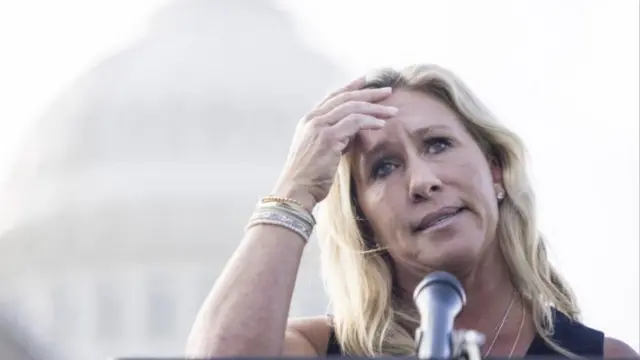 Image source, EPA
Image source, EPAMarjorie Taylor Greene has acknowledged her remarks were offensive
A Republican lawmaker in the US has apologised for likening coronavirus mask rules to the treatment of Jews in Nazi Germany.
Marjorie Taylor Greene of Georgia disavowed her comments after a visit to the US Holocaust Memorial Museum in Washington DC.
The conservative firebrand said it was important for her to acknowledge she had made "offensive remarks".
An ally of former US President Donald Trump, Greene has courted controversy since assuming office in January.
In an interview last month, she lambasted safety protocols adopted by Democrats in the House of Representatives, including a requirement that masks be worn on the chamber floor.
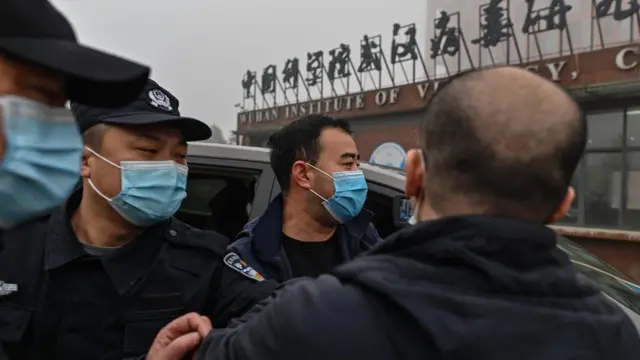 Image source, Getty Images
Image source, Getty ImagesThe lab-leak theory has been strongly rejected by China
Turning now to the very beginning of events, a top Chinese virologist has dismissed suggestions that Covid-19 may have escaped from a lab in the city of Wuhan, where the disease was first detected.
Chinese authorities linked early Covid-19 cases to a seafood market in Wuhan, leading scientists to theorise the virus first passed to humans from animals.
But recent scrutiny from the administration of US President Joe Biden has drawn attention to claims that the virus may have emerged from the Wuhan Institute of Virology.
Dr Shi Zhengli studies viruses at that lab. In a rare interview with the New York Times newspaper, external, she addressed the lab-leak theory.
“How on earth can I offer up evidence for something where there is no evidence?” she told the New York Times.
In a text message, she accused her critics of "constantly pouring filth on an innocent scientist".
There is no proof Covid-19 came from a lab, but President Biden has ordered a review that angered China, which has rejected the theory.
Read more: Why the Wuhan lab-leak theory is being taken seriously